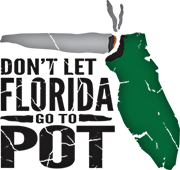By Bob Allen
A tiny Southern Baptist church snuffed out plans to open a medical marijuana facility in central Florida by rejecting an offer to lease a vacant parcel of land the company needs to comply with proposed state rules banning such operations within 1,000 feet of a church property.
At first Bethel Baptist Church in Lake Wales, Fla., a congregation of about 15 members — many who are shut-ins and unable to attend — voted 8-0 on Aug. 24 to accept an offer to lease the 3.2-acre parcel to GrowHealthy, a company poised to become one of America’s largest chains of medical marijuana nursery farms.
 Pastor Marshal Kirchik told local media that GrowHealthy persuaded church members to agree to a $500 a month lease for five years by appealing to their sympathy, telling them the product would help relieve people’s pain.
Pastor Marshal Kirchik told local media that GrowHealthy persuaded church members to agree to a $500 a month lease for five years by appealing to their sympathy, telling them the product would help relieve people’s pain.
After the first vote, Kirchik said the congregation got pushback from law enforcement, the Don’t Let Florida Go to Pot coalition and sister churches in Ridge Baptist Association, prompting a second vote the following week, in which church members voted 5-3 to reject the deal.
Mike Hasha, director of missions for the 61-church association based in Winter Haven, told The Ledger newspaper in Lakeland, Fla., he was “very concerned” when he first learned of the church’s plans the day after the initial vote.
Hasha said the association opposes any legalization of marijuana, including for medical use. While all of the association’s churches are autonomous, he told the newspaper, “Having membership in the association also calls for some unity within the association of our stances we take for and against certain issues.”
GrowHealthy announced in June acquisition of the former Sealy Mattress factory with plans to transform the 185,000 square foot facility on 33 acres into a state-of-the art center for production of pharmaceutical-grade medical marijuana.
A GrowHealthy official told the Ledger the company planned to invest $4 million in the plant that closed in 2002 and the operation would employ about 70 people.
According to a press release dated Aug. 26, the company planned to produce an extract nicknamed Charlotte’s Web — processed from a strain of marijuana with low levels of THC, the chemical that produces the marijuana “high” — that is used to treat children with severe epilepsy.
The strain is named after Charlotte Figi, a Colorado 6-year-old who was having 300 grand mal seizures a week before medical marijuana reduced the frequency to two or three times a month.
Gov. Rick Scott signed a bill in January legalizing the use of Charlotte’s Web to help an estimated 125,000 children in Florida who suffer from severe epilepsy. This fall Florida voters will cast ballots on a constitutional amendment that would legalize the use of marijuana to treat diseases like cancer, multiple sclerosis, glaucoma, hepatitis C, HIV, AIDS, ALS, Crohn’s disease, Parkinson’s disease “or other conditions for which a physician believes that the medical use of marijuana would likely outweigh the potential health risks for a patient.”
The Florida Baptist Convention executive board recently went on record opposing the amendment with a resolution stating the board “does not believe legalizing an addictive drug without strong regulatory oversight is an appropriate solution” and calling on Florida Baptist pastors to encourage church members to vote against the amendment.
